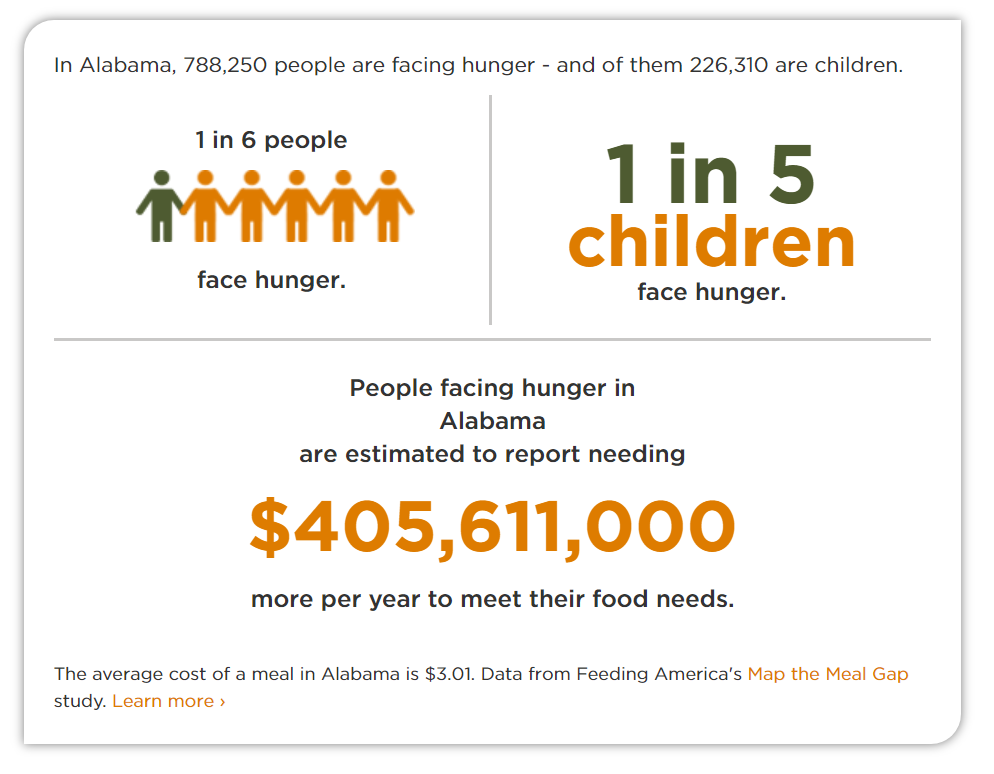 Millions of people across the United States face a hunger crisis. They have to make decisions every day that involve them choosing between eating and other necessities.
Millions of people across the United States face a hunger crisis. They have to make decisions every day that involve them choosing between eating and other necessities.
COVID-19 Has Worsened Food Security Rates
COVID-19 has caused many families around the world to face even worse food security challenges. Families have experienced losing their jobs, and school has been virtual, causing children to spend more time at home. Food pantries and distribution centers have been beneficial to communities because they have provided food at no cost to people who have limited access, like families experiencing hardships.
Food insecurity is a complex problem. Many food-insecure families are also experiencing other challenges, such as a lack of affordable housing, low wages, little to no health insurance, insufficient transportation, and fewer social supports.
Help Families Make Ends Meet
Food pantries help families put healthy meals on the table by providing fresh items like meat, cheese, eggs, and produce. They also help people obtain personal care items, baby food, diapers, and household cleaning supplies. When economic hardships hit and people could not pay all their bills, they began cutting corners on food. This is a primary tactic used to stretch limited dollars. Many unhealthy food choices tend to be cheaper.
While food pantries provide an essential supplement for struggling households throughout the entire year, they are typically busier during cold weather months. Typically food pantries find a 13% increase in visits from November through February. From holiday gifts, food for family gatherings, and heating bills, overall household spending is high this time of year, leaving families and seniors facing tough decisions. Using the food pantry helps families make ends meet during the rest of the year by expanding their budgets and saving money for other critical expenses.
Food Pantries Provide Healthy Options
Food pantries can operate in several ways to reach communities that need food. For example, members can deliver food bags to community members who do not have access to transportation. Also, onsite food distribution is an option. Organizations such as faith-based and community organizations partner with food distribution centers and host food drives regularly. No matter the option, food pantry managers work hard to provide food access to families.
Charitable food systems are an essential contributor to the food environment of people experiencing food insecurity; many organizations within this system have prioritized sourcing and supplying more nutritious foods. This charitable food work is significant because many items moving through the system are foods that can survive prolonged periods on shelves without spoiling, and are highly processed foods that tend to be high in saturated fat, sodium, and added sugars. Recent efforts to promote healthy choices in food banks and food pantries include:
- Creating and adopting formal nutrition policies
- Expanding nutrition education
- Cultivating relationships with food donors who can donate healthier products
- Investing in capacity to store and display healthier food items
A Food Pantry Serving Our Local Community
This year, The Wellness Coalition was able to provide funding to Reality & Truth Ministries for refrigeration. Reality & Truth Ministries is a 501c3 nonprofit organization located in Montgomery, Alabama. This organization is operated solely by volunteers and servant leaders who serve meals, provide clothing, and host Bible study and Sunday school groups.
Meals are provided to anyone who wants to attend the dinner groups on Monday-Friday at 5 pm. Between 4-5 pm, they open their clothes closet to anyone who is in need. This is a great way to serve the community. You can help too!
Make a Financial Donation
Visit the Montgomery Area Food Bank website at montgomeryareafoodbank.org and make a monetary donation of any amount. Donating to the food bank has helped feed many seniors, children, and less fortunate individuals across Alabama.
Donate Food or other Essential items
You can also contribute to local churches that have a food pantry. Local churches and community organizations have also partnered with the Montgomery Area Food Bank to host food drives, allowing individuals to drive up and receive food bags or boxes. Food pantries always need donated items, including non-perishable food items, toiletries, baby food, and more.
Become a Volunteer or Fundraise
Volunteering is vital when working to serve communities. Contact your local food pantries to volunteer at food drives or fundraisers, or serve food to the community. You can make a difference in reaching more families.
Overall, food pantries and distribution centers are continuing to make an impact across Alabama. More people are receiving food during their time of need. More organizations are getting involved in serving the communities during the pandemic. However, it will take all of us to meet the needs of our community and to put an end to hunger.

